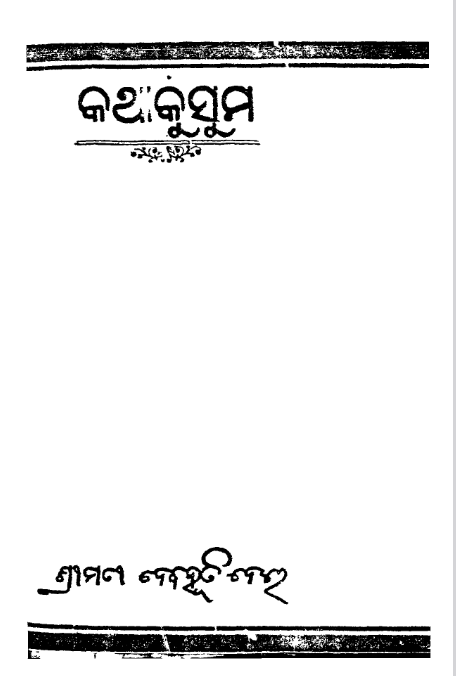Katha Kusuma, published in 1940 by the esteemed author Debahuti Dei, stands as a significant work in Odia literature. This novel not only captivates with its narrative but also provides a profound examination of human emotions and the social dynamics of the time. Set against the backdrop of a changing Odisha, Katha Kusuma intricately weaves themes of resilience, love, and cultural identity into its storyline.
At the heart of Katha Kusuma lies the tale of its protagonist, Kusuma, a strong-willed and independent woman navigating the complexities of life in a patriarchal society. The story delves into her struggles and triumphs as she seeks to assert her identity amidst societal expectations and familial duties. Kusuma embodies the spirit of the women of her time, representing both traditional values and a burgeoning desire for self-realization.
The novel unfolds within the vibrant landscape of Odisha, where the lush scenery symbolizes both beauty and the constraints of societal norms. Debahuti Dei masterfully portrays the cultural nuances of Odisha, from traditional practices to the rich tapestry of local life. This grounding in place adds depth and authenticity to Kusuma’s journey.
Katha Kusuma is replete with themes of resilience and the search for identity. Kusuma faces numerous challenges, including familial pressures and societal restrictions, yet she remains undeterred in her quest for personal fulfillment. Debahuti Dei highlights the internal conflicts that many women experience, pitting the desire for freedom against the weight of societal obligations.
The author also explores the theme of sacrifice, as Kusuma grapples with the choices she must make for her family versus her own aspirations. This poignant exploration of selflessness versus self-identity resonates deeply, encouraging readers to reflect on their own lives and the delicate balance between duty and personal dreams.
Debahuti Dei’s characters are richly developed, each embodying unique traits that contribute to the overarching narrative. While Kusuma stands as the central figure, secondary characters provide further insight into the societal structure of the time. The relationships Kusuma builds—filled with love, tension, and camaraderie—serve to enhance her personal story, illuminating the intricacies of human connections.
Beyond its narrative, Katha Kusuma serves as a reflective commentary on the social and cultural changes occurring in Odisha during the early 20th century. Debahuti Dei’s work echoes the voices of women striving for recognition and the right to define their paths in a rapidly changing world. The novel acts as both a product of its time and a timeless exploration of the human condition.
Books Info
| Books name | Katha Kusuma / କଥା କୁସୁମ |
| Author | Debahuti Dei |
| No Of pages | 81 |
| Publisher | Umacharana Mahanti |
| Publication | 1940 |
| Printed At | NA |
| Distributor | NA |

